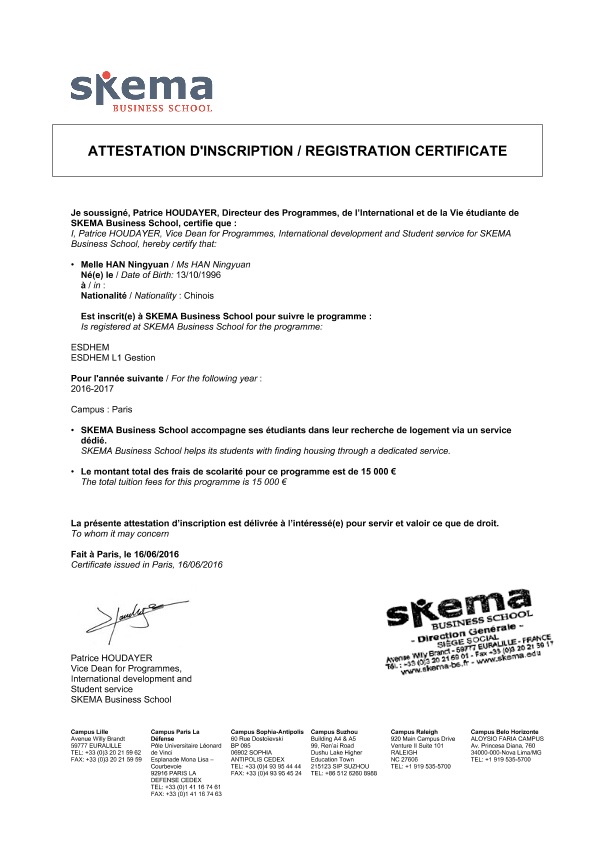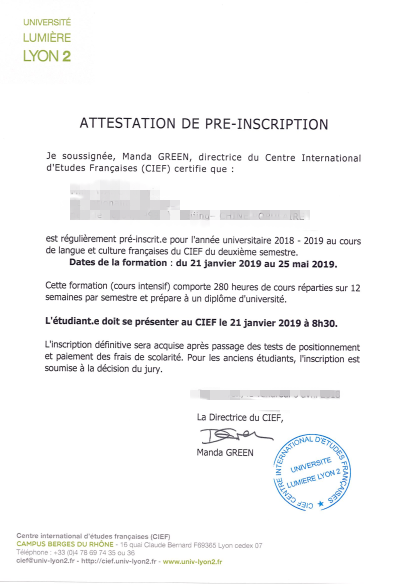口语Festival素材:Bastille Day法国国庆日.
2017-08-07 723阅读
�
July 14th
�
Bastille Day is a National holiday in France. It is very much like Independence Day in the United States because it is a celebration of the beginning of a new form of government.
�
At one time in France, kings and queens ruled. Many people were very angry with the decisions made by the kings and queens.
�
The Bastille was a prison in France that the kings and queens often used to lock up the people that did not agree with their decisions. To many, it was a symbol of all the bad things done by the kings and queens. So, on July 14, 1789, a large number of French citizens gathered together and stormed the Bastille.
�
Just as the people in the United States celebrate the signing of the Declaration of Independence as the beginning of the American Revolution, so the people in France celebrate the storming of the Bastille as the beginning of the French Revolution. Both Revolutions brought great changes. Kings and queens no longer rule. The people rule themselves and make their own decisions.
�
The representatives of the French people, organized as a National Assembly, believing that the ignorance, neglect, or contempt of the rights of man are the sole cause of public calamities and of
�
the corruption of governments, have determined to set forth in a solemn declaration the natural, unalienable, and sacred rights of man, in order that this declaration, being constantly bore all the members of the Social body, shall remind them continually of their rights and duties; in order that the acts of the legislative power, as well as those of the executive power, may be compared at any moment with the objects and purposes of all political institutions and may thus be more respected, and, lastly, in order that the grievances of the citizens, based hereafter upon simple and incontestable principles, shall tend to the maintenance of the constitution and redound to the happiness of all. Therore the National Assembly recognizes and proclaims, in the presence and under the auspices of the Supreme Being, the following rights of man and of the citizen:
�
1 Men are born and remain free and equal in rights. Social distinctions may be founded only upon the general good.
�
2 The aim of all political association is the preservation of the natural and imprescriptible rights of man. These rights are liberty, property, security, and resistance to oppression.
�
3. The principle of all sovereignty resides essentially in the nation. No body nor individual may exercise any authoritywhich does not proceed directly from the nation.
�
4. Liberty consists in the freedom to do everything which injures no one else; hence the exercise of the natural rights of each man has no limits except those which assure to the other members of the society the enjoyment of the same rights. These limits can only be determined by law.
�
5. Law can only prohibit such actions as are hurtful to society.Nothing may be prevented which is not forbidden by law, and no one may be forced to do anything not provided for by law.
�
6. Law is the expression of the general will. Every citizen has a right to participate personally, or through his representative, in its foundation. It must be the same for all, whether it protects or punishes. All citizens, being equal in the eyes of the law, are equally eligible to all dignities and to all public positions and occupations, according to their abilities, and without distinction except that of their virtues and talents.
�
7. No person shall be accused, arrested, or imprisoned except in the cases and according to the forms prescribed by law. Any one soliciting, transmitting, executing, or causing to be executed, any arbitrary order, shall be punished. But any citizen summoned or arrested in virtue of the law shall submit without delay, as resistance constitutes an offense.
�
8. The law shall provide for such punishments only as are strictly and obviously necessary, and no one shall suffer punishment except it be legally inflicted in virtue of a law passed and promulgated bore the commission of the offense.
�
9. As all persons are held innocent until they shall have been declared guilty, if arrest shall be deemed indispensable, all harshness not essential to the securing of the prisoner&aposs person shall be severely repressed by law.
�
10. No one shall be disquieted on account of his opinions, including his religious views, provided their manifestation does not disturb the public order established by law.
�
11. The free communication of ideas and opinions is one of the most precious of the rights of man. Every citizen may, accordingly, speak, write, and print with freedom, but shall be responsible for such abuses of this freedom as shall be dined by law.
�
12. The security of the rights of man and of the citizen requires public military forces. These forces are, therore, established for the good of all and not for the personal advantage of those to whom they shall be intrusted.
�
13. A common contribution is essential for the maintenance of the public forces and for the cost of administration. This should be equitably distributed among all the citizens in proportion to their means.
�
14. All the citizens have a right to decide, either personally or by their representatives, as to the necessity of the public contribution; to grant this freely; to know to what uses it is put; and to fix the proportion, the mode of assessment and of collection and the duration of the taxes.
�
15. Society has the right to require of every public agent an account of his administration.
�
16. A society in which the observance of the law is not assured, nor the separation of powers dined, has no constitution at all.
�
17. Since property is an inviolable and sacred right, no one shall be deprived thereof except where public necessity, legally determined, shall clearly demand it, and then only on condition that the owner shall have been previously and equitably indemnified.
�
The above document was written by The Marquis de Lafayette, with help from his friend and neighbor, American envoy to France, Thomas Jferson. Lafayette, you may recall, had come to the Colonies at age 19, been commissioned a Major General, and was instrumental in the deat of the British during the American Revolutionary War. He considered one special man his &aposfather&apos:George Washington.
�
French King Louis XVI signed this document, under duress, but never intended to support it. Indeed, the Revolution in France soon followed, leading to the tyrannical rule of Napolean Bonaparte.
留学咨询
更多出国留学最新动态,敬请关注澳际教育手机端网站,并可拨打咨询热线:400-601-0022
留学热搜
相关推荐
- 专家推荐
- 成功案例
- 博文推荐

Copyright 2000 - 2020 北京澳际教育咨询有限公司
www.aoji.cn All Rights Reserved | 京ICP证050284号
总部地址:北京市东城区 灯市口大街33号 国中商业大厦2-3层









王伟燕 向我咨询
行业年龄 9年
成功案例 4345人
澳洲中小学留学(公立和顶级私立) 商科:金融、会计、MBA、人力资源管理、酒店管理、市场营销 工科:电子电气工程、计算机科学、化学工程、机械工程、环境工程、材料工程、工业 工程、建筑规划与景观、土木工程、石油工程、食品与营养、生物医学 理科:数学与统计、物理、化学、药学、地理 文科:传播与传媒、经济学、法学(LLM&JD)、社会工作、、社会学、心理学、教育学、广告学、对外英语教学(TESOL) 艺术类:影视及编导类、美术与设计类、音乐、艺术管理、艺术史
匡帝-天津 向我咨询
行业年龄 13年
成功案例 3566人
高分学生名校申请,一般学生发掘优势申请,大龄,低分学生的留学移民指导。